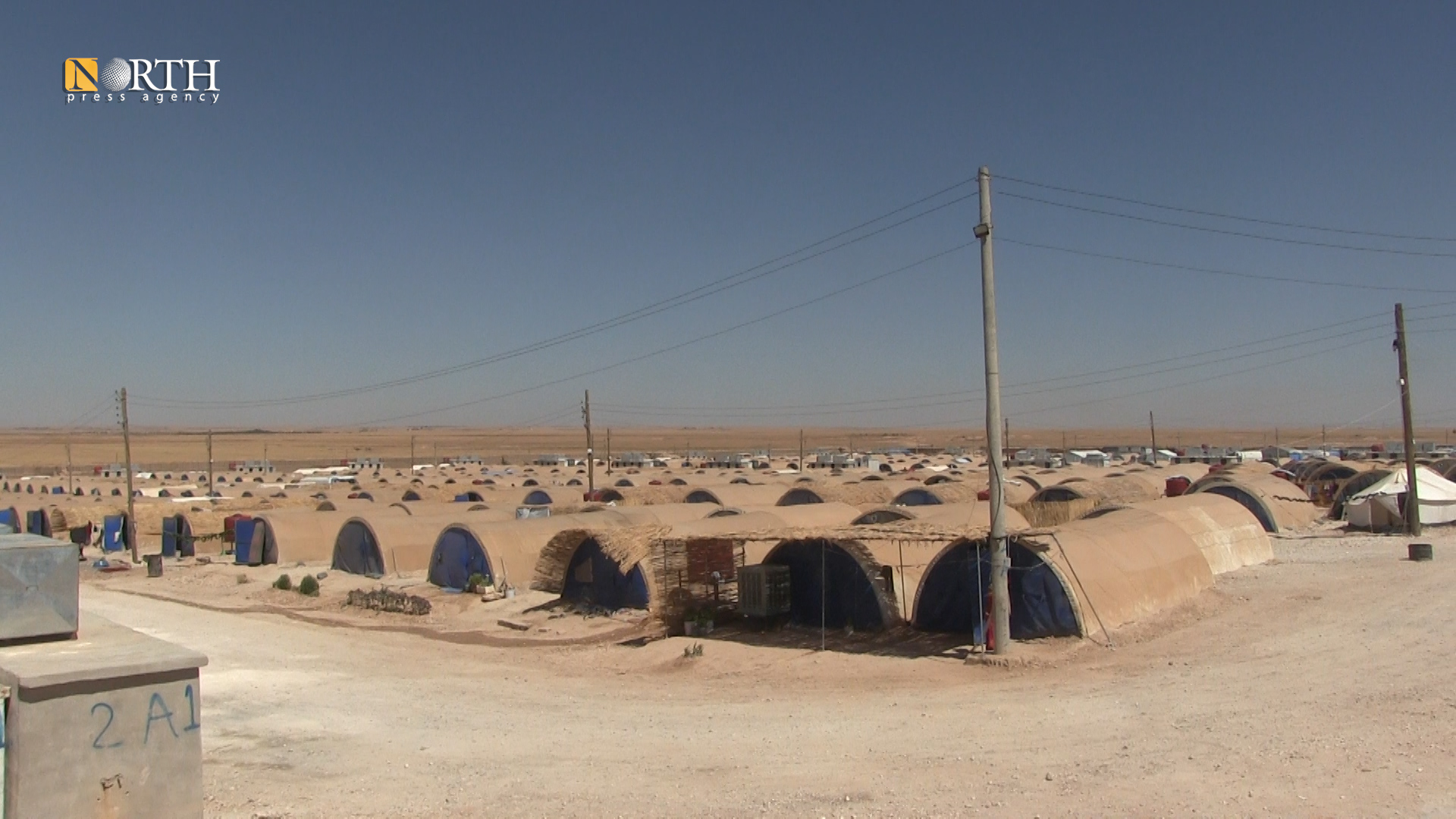RAQQA, Syria (North Press) – Displaced people in the northern countryside of Raqqa criticized humanitarian organizations operating in the city of Raqqa for improperly distributing humanitarian aid on Wednesday.
The IDPs said that the distribution mechanism was “unfair” and that they were in dire of aid in the light of the Syrian currency collapse and the lack of jobs.
Orphans’ breadwinner
Sahar al-Eidan, told North Press that since her departure from the village of Abu Kharaza, north of Ain Issa, nine months ago, she moved between several villages to ended up in Tishreen farm.
Al-Eidan takes care of four children, the eldest of whom is twelve, after her husband died two years ago in a traffic accident.
Because of the difficult living conditions, al-Eidan was forced to work in various jobs and at low wages to support her family.
“I currently work in a local cotton-picking workshop in order to support my family, as no one can spend on the family except me.”
“Since my settlement in Tishreen Farm, 30 km north of Raqqa, I only received humanitarian aid once, and it was insufficient,” she said.
It was only a bag of flour and some other foodstuffs, and her basket was smaller than her neighbor’s basket, according to al-Eidan.
She declared that every time she hears about the distribution of humanitarian aid, she immediately goes to the commune to register her family’s name, but when it is time for distribution, she gets nothing.
Procrastination of commune
Abdullah al-Alawi, displaced from the town of Suluk and currently residing the village of al-Khabas north of Raqqa, said that he has not received any assistance since he came to the area a year ago.
Al-Alawi suffers from cartilage inflammation in his left knee, but he is forced to work in the arduous construction profession to secure his daily expenses.
“I have cartilage inflammation that causes severe pain due to the long hours of standing during my work, but I have no other job, so I endure the pain in order to support my family,” al-Alawi said.
Most of his earnings are spent on painkillers and treatment for his leg.
“I registered my name with the commune of the village but did not receive any help.”
He added, “Every time I ask the commune about my ration of food baskets, the official tells me that food baskets will be distributed to the displaced individually, but we did not see anything.”
The number of organizations registered in Raqqa Civil Council (RCC) is 104, and the number of makeshift camps in Raqqa countryside is 34.
These camps are inhabited by 21,000 displaced persons from various regions of Syria, while the total number of displaced persons has reached 80,000 residing in the countryside and neighborhoods of the city of Raqqa.
Samer al-Nashif, head of the organization’s office of the Social Affairs and Labor Committee of the Raqqa Civil Council, said the work was done in coordination with the organizations registered in the RCC.
He added that the mechanism for distributing humanitarian aid to the residents and displaced persons of the city of Raqqa was by distributing food baskets and cash cards according to criteria to target the neediest community groups, and the office was working on distributing aid according to evaluations made by specialized committees.
He added, “we are working to target the camps with the aid provided by the organizations operating in the city of Raqqa at a hundred percent.”
He pointed out that the distribution was carried out periodically according to the program of each organization in distributing aid, which was denied by the displaced.
Al-Nashif said, “As for the displaced people residing in the settlements in the villages and even within the city, they are targeted according to the assessments of the communes of the neighborhoods in which they live in.”
However, the official acknowledged that there were some errors and some cases of corruption, which may occur during the census and uploading of data.

